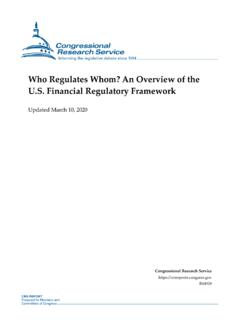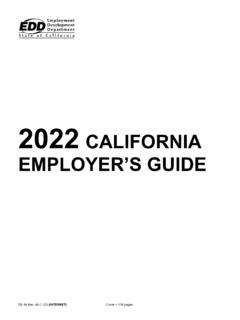Transcription of Data Protection in India: Overview - Khaitan & Co
1 Data Protection in India: Overview , Practical Law Country Q&A w-013-9999. Data Protection in India: Overview by Supratim Chakraborty, Khaitan & Co LLP, with Practical Law Data Privacy Advisor Country Q&A | Law stated as of 12-Apr-2021 | India A Q&A guide to data Protection in India. This Q&A guide gives a high-level Overview of the data Protection laws, regulations, and principles in India, including the main obligations and processing requirements for data controllers, data processors, and other third parties. It also covers data subject rights, the supervisory authority's enforcement powers, and potential sanctions and remedies. It briefly covers rules applicable to cookies and spam.
2 To compare answers across multiple jurisdictions in our Data Privacy Advisor Product, visit the Data Privacy Advisor Data Protection Country Q&A Tool. To compare answers across multiple jurisdictions available in our Global Guides product, visit the Global Guides Data Protection Country Q&A Tool. Regulation Legislation 1. What national laws regulate the collection, use, and disclosure of personal data? Data Protection Law There is no overarching national law in India that regulates the collection and use of personal data. A proposed legislative data Protection framework in India would significantly change the law. The Personal Data Protection Bill, 2019 was presented in the 2019-2020 winter session of the Parliament after the Cabinet approved the final text of the bill.
3 A Joint Parliamentary Committee continued to review and revise the bill throughout 2020. Other Relevant Laws The Information Technology Act 2000 as amended by the Information Technology (Amendment) Act 2008 (IT. Act and IT Amendment Act) provides certain provisions relating to personal data privacy and Protection in India. Certain rules such as the Information Technology (Reasonable Security Practices and Procedures and Sensitive Personal Data or Information) Rules 2011 (Privacy Rules) implement the IT Act and prescribe general information 2021 Thomson Reuters. All rights reserved. 1. Data Protection in India: Overview , Practical Law Country Q&A w-013-9999. security requirements.
4 The IT Amendment Act aims to address issues that the original IT Act failed to cover and to accommodate further development of IT and related security concerns since the original law was passed. However, the IT Act's primary focus is information security, rather than data Protection , and while it does regulate certain aspects of personal data use on IT networks within India (for more on the IT Act's scope, see Question 2, Question 3, and Question 4), it does not provide comprehensive rules or regulations on personal data processing or transfers (for more on the rules governing transfers, see Question 20). Indian general laws such as the Indian Penal Code, 1860 (IPC) also regulate some aspects of cybercrime.
5 For example, Section 403 of the IPC imposes penal consequences for dishonest misappropriation or conversion of movable property. While the definition of movable property does not expressly include data, data theft may be tried under this provision. Some sectoral regulators such as the Reserve Bank of India also regulate data Protection through sector-specific regulations. These laws affect organizations operating in: The banking and financial services sector. For example: the Aadhaar (Targeted Delivery of Financial and Other Subsidiaries, Benefits, and Services) Act 2016 as amended by the Aadhaar and Other Laws (Amendment) Bill, 2019 permits financial institutions to use biometric information to verify individuals' identities when opening bank accounts; and the Credit Information Companies (Regulation) Act, 2005 and other Indian banking laws require customer confidentiality and Protection of customer data.
6 The insurance industry. The Insurance Regulatory and Development Authority of India issues regulations and rules that require insurance companies to protect confidential information they receive from misuse. For more on some of these regulations, see Country Q&A, Data Localization Laws: India. The telecommunications and online service provider sector. These organizations must comply with the IT Amendment Act, as implemented by the Information Technology (Intermediaries guidelines). Rules 2011 (Intermediaries Rules), which were superseded by the Information Technology (Intermediary Guidelines and Digital Media Ethics Code) Rules 2021 (in Hindi) (IT Rules 2021), which were issued on February 25, 2021.
7 Telecommunications providers must also comply with the Indian Telegraph Act. For more on the Intermediaries Rules, see Practice Note, Information Security Considerations (India): Telecommunications and Online Service Providers and Country Q&A, Email Marketing Compliance: India. The responses provided in this Q&A focus primarily on the IT Act (as amended by the IT Amendment Act) and the Privacy Rules. Scope of Legislation 2. To whom do the laws apply? 2021 Thomson Reuters. All rights reserved. 2. Data Protection in India: Overview , Practical Law Country Q&A w-013-9999. The Information Technology Act 2000 as amended by the Information Technology (Amendment) Act 2008 (IT. Act and IT Amendment Act) do not use the terms data controllers, data processors, or data subjects.
8 They apply to individuals and organizations in and outside of India that process personal information either: In India. Outside of India if they use a computer, computer system, or computer network located in India. (Sections 1(2) and 75, IT Act.). Some sections of the IT Act and IT Amendment Act, including the requirement to implement reasonable security practices and procedures (see Question 8), apply only to companies, known as body corporates under Indian law, meaning corporations, proprietorships, or other associations engaged in professional or commercial activities (Section 43A, IT Act, as amended by Section 22, IT Amendment Act). Practitioners understand this definition to exclude organizations that are not classified as engaging in professional or commercial activities.
9 The implementing Information Technology (Reasonable Security Practices and Procedures and Sensitive Personal Data or Information) Rules 2011 (Privacy Rules) apply only to body corporates and individuals acting on a body corporate's behalf. Certain sections of the IT Act addressing damages and punishment for unlawful data disclosure refer only to natural persons rather than organizations (for example, Section 72, IT Act). The IT Act also prescribes special requirements for intermediaries, specifically organizations that provide connectivity, online marketplaces, and other supporting services in the internet environment that involve an organization receiving, storing, or transmitting an electronic record on another person's behalf (Section 2(1)(w), IT.)
10 Act, as amended by Section 4, IT Amendment Act). For more on these requirements and their implementing rules, see Practice Note, Information Security Considerations (India): Telecommunications and Online Service Providers. Other sectoral laws apply to participants in the relevant sector (see Other Relevant Laws). 3. What personal data does the law regulate? The Information Technology Act 2000 as amended by the Information Technology (Amendment) Act 2008 (IT. Act and IT Amendment Act) is not a comprehensive data Protection law governing all aspects of personal data processing. Instead, it sets limits on processing and using both: Personal information. The Information Technology (Reasonable Security Practices and Procedures and Sensitive Personal Data or Information) Rules 2011 (Privacy Rules) define personal information as any information that relates to a natural person which, either directly or indirectly, in combination with other available or likely available information, may identify that person (Rule 2(i), Privacy Rules)).







